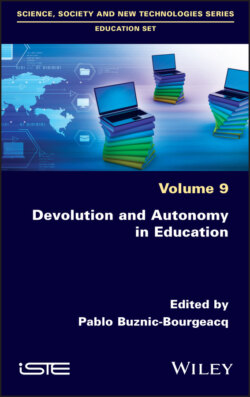Читать книгу Devolution and Autonomy in Education - Группа авторов - Страница 9
Institutional knowledge and situational knowledge: a fundamental distinction
ОглавлениеThe distinction between institutional knowledge and situational knowledge exists in the philosophical field, in which it seems to have different delimitations depending on the authors, if we refer to a blog in which the subject appears (Juignet 2016):
The French term “connaissance” [situational knowledge] comes from the Old French “conoistre”, which dates back to the 11th century. The latter derives from the Latin cognescere and noscere, which means, at the same time, to learn, to know and to “know how”. Knowledge derives from the Latin sapere and sapio, which means to have taste, intelligence, prudence. In everyday language [in French], “connaissance” and “savoir” are more or less synonymous.
It is, however, interesting to distinguish the active process of production, which we shall call “situational knowledge” from its result, which we shall call “institutional knowledge” or “acquired knowledge”. It is a question of applying the difference between action and its result, which is tantamount to saying that the act of putting knowledge into action produces knowledge.
Situational knowledge implies an active relationship with the world that aims to represent and explain it. This activity generally combines action and reflection. There are various types of knowledge that are more or less effective, reliable and realistic.
Institutional knowledge is the corpus of accepted and transmitted notions, the organized set of information in a given field. Part of the institutional knowledge represents the world in a certain way and can be used for practical purposes. It only needs to be learned and is accumulated over generations, thus forming culture.
The distinction that is made within the framework of situation theory is close to this one, although some important points are specified.
In a situation, a subject is interacting with an milieu and is seeking to realize an issue, and to do so focuses on situational knowledge, which represents a balance between the subject and the milieu (Balacheff and Margolinas 2005; Margolinas 2014). In this sense, situational knowledge is not “in the subject” and not “in the milieu” either, it exists in the interaction between the two. In situations of action (Brousseau 1981), situational knowledge is a priori implicit and often not explainable. The different types of mathematical situations described by Brousseau aim to transform this situational knowledge by modifying the necessities of the situation, whether a formulation situation (formulation becomes necessary) or a validation situation (proof becomes necessary).
In a given institution, institutional knowledge results from a process of selection, explanation, formalization and legitimization, which, in written societies, is translated into a text: the “text of knowledge”. Institutional knowledge is related to the institutions that legitimize it.
As a result, situational knowledge in a situation is sometimes formulated, validated, formalized and legitimized and gives rise to institutional knowledge in a given institution, which is the epistemological and social process of institutionalization. However, institutional knowledge as such does not give direct power in a situation: in order to enable a subject to act, it must be transformed into situational knowledge in a situation. This is one aspect of the devolution process.
